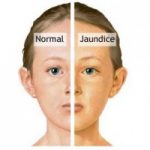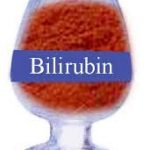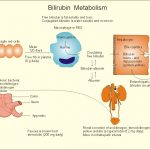Posts Tagged ‘bilirubin’
What causes High Bilirubin?
What is bilirubin? Bilirubin is a yellowish substance in your blood. It forms after red blood cells break down, and it travels through your liver, gallbladder, and digestive tract before being excreted. Typically, bilirubin levels fall somewhere between 0.3 and 1.2 milligrams per deciliter (mg/dL). Anything above 1.2 mg/dL is usually considered high. The condition of having…
Read MoreGallstones
Gallstones Overview Gallstones can lurk inside your gallbladder. Many people have gallstones and never know it. Gallstones are hard deposits in your gallbladder, a small organ that stores bile, which is a digestive fluid made in the liver. Gallstones may consist of cholesterol, salt, or bilirubin, which is discarded red blood cells. Gallstones range in…
Read MoreWhat you need to Know about Jaundice
What you need to Know about Jaundice Learn all about jaundice – what it is, how it happens, and what conditions can lead to this yellowish discoloration of the skin and whites of the eyes caused by abnormally high levels of bilirubin in the bloodstream. Most people understand that jaundice is a yellowing of…
Read MoreWhat is Jaundice?
What is Jaundice? Jaundice is not a disease but rather a sign that can occur in many different diseases. Jaundice is the yellowish staining of the skin and sclerae (the whites of the eyes) that is caused by high levels in blood of the chemical bilirubin. The color of the skin and sclerae vary depending…
Read MoreWhat Is Bilirubin?
What Is Bilirubin? >Bilirubin is a breakdown product of hemaglobin, the substance in blood that carries oxygen. Normally when blood cells become old they are trapped and destroyed by the spleen. When this occurs, the hemaglobin must be broken down in the liver to bilirubin in order to be disposed of. Bilirubin is eventually excreted…
Read MoreHow not eating increases Total Serum Bilirubin
How not eating increases Total Serum Bilirubin (TSB) in both healthy adults and those with Gibert’s Syndrome has been studied for several years. Here is a link to one fascinating article printed in the British Pharmacological Society which showed that not eating for a period of 12 to 24 hours has a dramatically significant impact…
Read More




